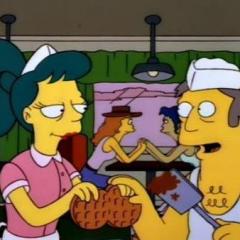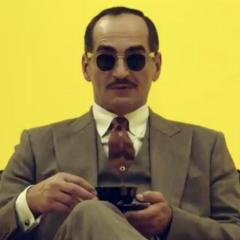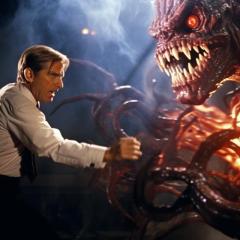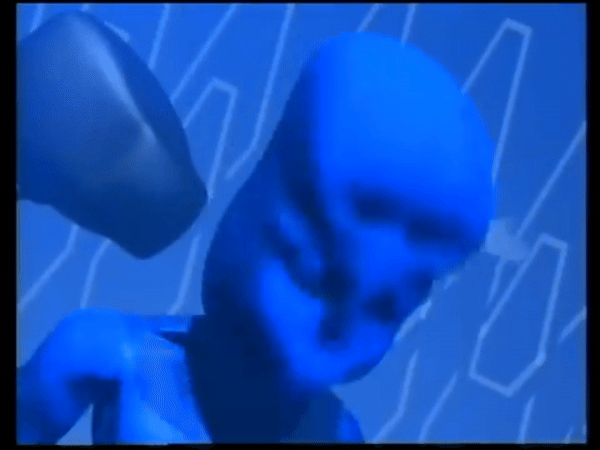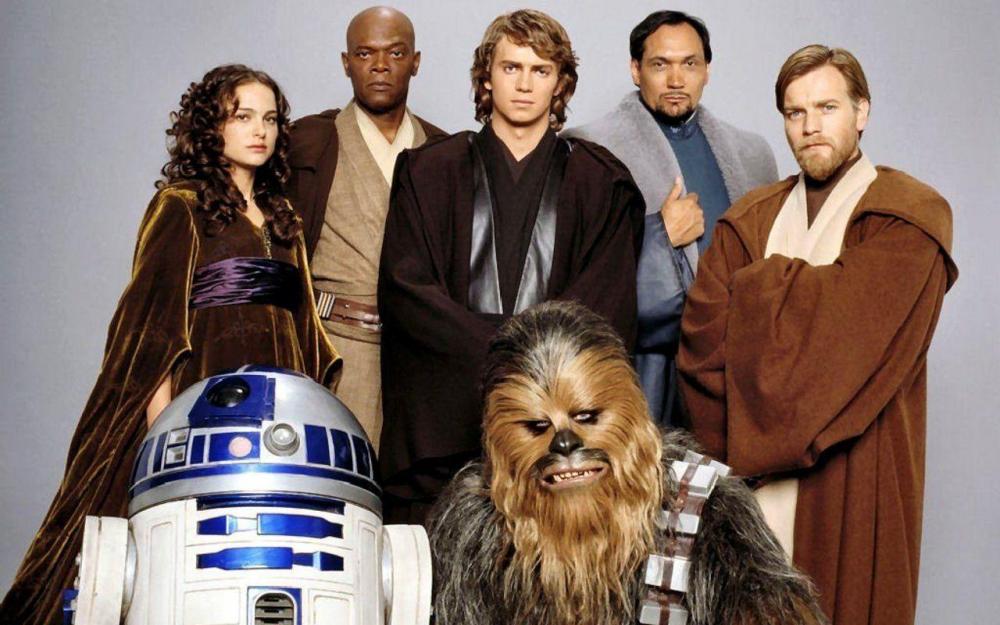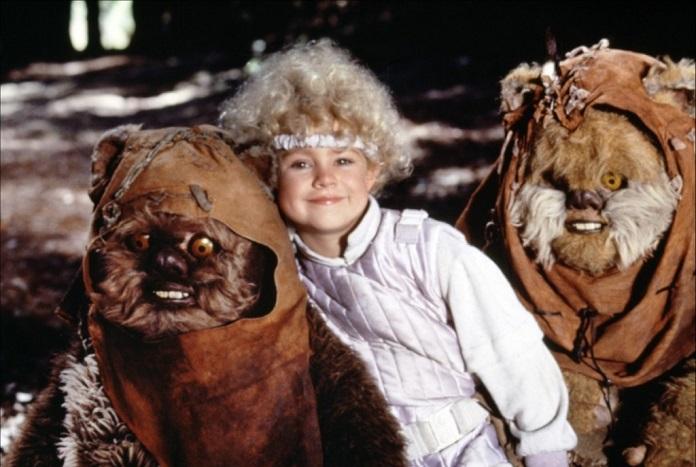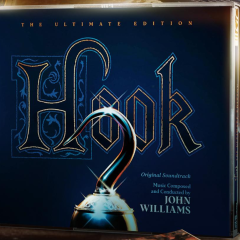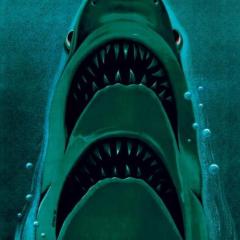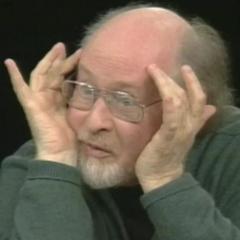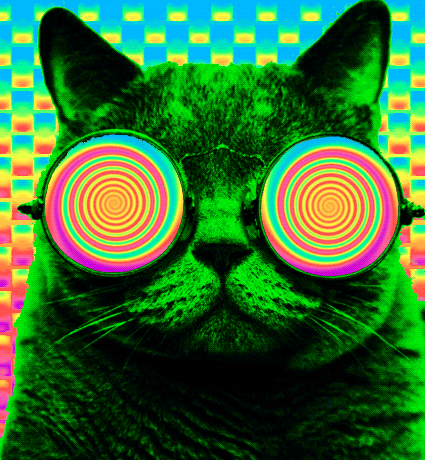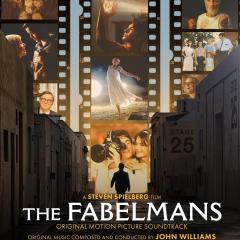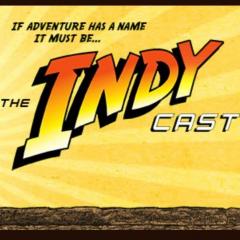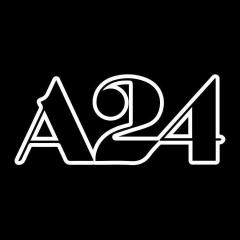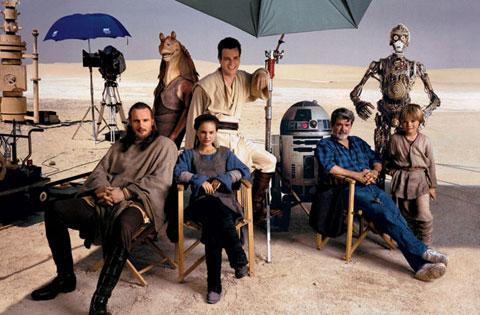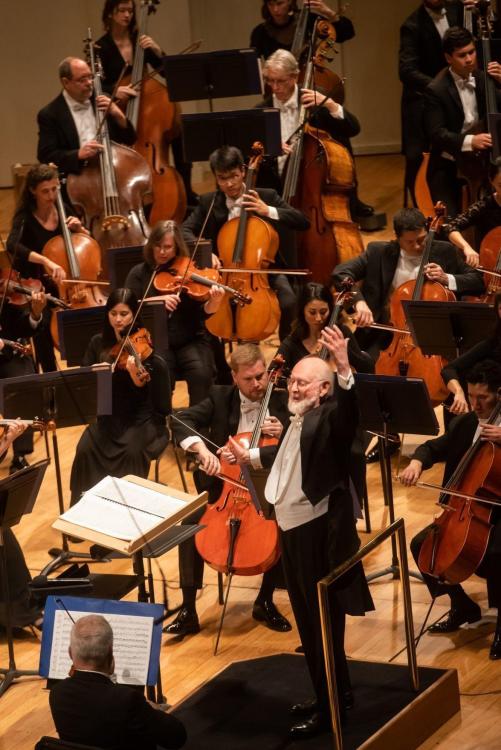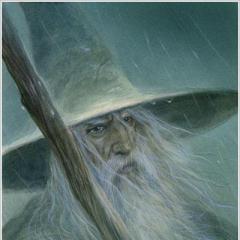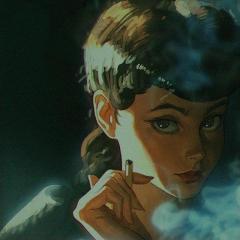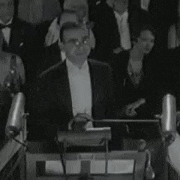Leaderboard
Popular Content
Showing content with the highest reputation on 04/11/19 in all areas
-
Fantastic Beasts And Where To Find Them 5-film series
bollemanneke and 4 others reacted to Disco Stu for a topic
I'm going to write JK Rowling a letter and title it "Fantastic Directors and Where to Find Their Agents"5 points -
4 points
-
I'm sure their haste to lock Johnson down had to do with not only their opinion of the movie, but also their very painless process behind the scenes (in fact, TLJ is thus far the only modern Star Wars movie to come together as planned).4 points
-
.
Sharkissimo and 2 others reacted to Disco Stu for a topic
Gonna split my "musical ideal" into two paths, but both basically have similar ends of getting at a feeling of transcendence/being transported, spiritually. The final movement of the Escapades (Catch Me If You Can) suite which has this incredible rhythmic vitality, imaginative orchestration, a sense of grandiosity, and its own internal dramatic logic where it feels like every note/section must follow the previous one to tell the musical narrative (aka la grande ligne) "The Peterson House and Finale" which has a simple but not simplistic sense of reverential awe and existential contemplation. That Lincoln inspired combination of both homespun and classical. Also especially for this being an end credits suite, it like the above track achieves its own internal musical narrative in a way that goes beyond just summarizing themes featured in the score.3 points -
The Lost World, simply because I didn't notice or really care for the score until the LLL release. Now it's some of my favourite film music and most played in the last three years since its release!3 points
-
So, so many but probably the one that always connected the most with me viscerally was Clash of the Sabers (aka The Duel) from ESB. First the high clusters opening which is VERY JW. It's one of those things that in two seconds, I know it's JW. Then probably the most sinister version ever of the Empire. I feel this cue is so full of desperate loss, crushing defeat, mixed with hope and yearning plus superb playing by LSO! Struggle, hope, and villainy in extremes. The absolute precision of the brass section is stunning. I told David Cripps this and after a pause he responded with a childish smile, "Damn, we were good." But musically it is so freaking sophisticated, chorals, fugato, atonality, clusters, harmony, bold lyricism, etc. JW was firing on all cylinders. It just builds and builds in emotion and intensity and is probably the cue I've always compared his very best moments to. It ends desperately distorting the lyrical melodies almost to their breaking point but the goal is out of our hero's reach and the music so perfectly captures this. But I remember hearing it in the theater for the first time in 1980 as a kid and it is permanently etched in my memories so it's very possible part of my adoration of this is the special memories. I think what also makes it so effective is before and after we get such great dramatic music with the Carbon Freeze and Losing the Hand. Though you only asked for one, I'll cheat and say Asteroid Belt is honorable mention. Maybe E.T. flying - the first time "the Theme" comes in big. There are so many examples but those were some special call outs.3 points
-
'Everyone' being a very vocal minority of of dubious standing.2 points
-
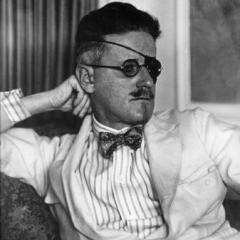
Fantastic Beasts And Where To Find Them 5-film series
bollemanneke and one other reacted to TheUlyssesian for a topic
https://www.wizardingworld.com/news/the-third-fantastic-beasts-film-confirms-new-details-including-cast-members-and-location This is public admission of defeat from Rowling. Of course she wanted to be a screenwriter and the relative failure of Grindlewald means that her solo screenwriting career is probably at an end. Or it will atleast get more scrutiny. This is a suits decesion. WB absolutely mandated Kloves in all likelihood to greenlight FB3. I think the verdict was clear - the reviews all panned the script. I think everything else was there - the design work remains exquisite, the score is outstanding, the actors are all good, the direction is competent. What tripped them up in part 2 is the horrible script. It was Rowling getting complacent that she delivered a solo screenwriting hit with an original screenplay with FB1. But you have to always remember that you cannot take the audience's attention for granted. The audience is smart. Honor them. Give them something good. Don't half-ass it. Marvel movies do this consistently, that is why people come again and again. Kloves is a good sign. Rowling is of course a good writer, no question about it. But screenplays are in some ways a more challenging medium.2 points -
The Phantom Menace2 points
-
2 points
-
If it was just one film, why not. I don’t know why everything has to be a trilogy, or why they were so confident in RJ making some smash hit 3-part blockbuster epic when his first Star War hadn’t even come out. They must have been hoping/assuming Last Jedi would serve as a proof of concept for audiences, like everyone would just be demanding more from Rian Johnson in droves...I’m not really sure why, and I think the movie is pretty good.2 points
-
I was into The Last Jedi a lot and would love to see Johnson do something different with Star Wars, but I'm not banking on this happening either at this point.2 points
-
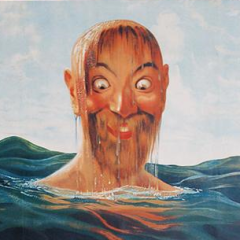
Which JW score contains the best expanded/unreleased material?
Smeltington and one other reacted to Holko for a topic
Most of them. But in a lot of cases it's not just the individual highlights but the whole presentation, experience and structure that make complete scores heaps better than their OSTs.2 points -
2 points
-
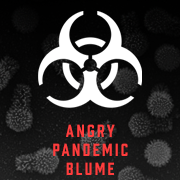
Plagiarism or Inspiration?
_deleted_ and one other reacted to BLUMENKOHL for a topic
2 points -
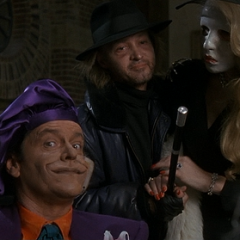
Game Of Thrones Showrunners tackle Star Wars.
Pieter Boelen and one other reacted to Gruesome Son of a Bitch for a topic
It's a decent guilty pleasure flick with a good cast and lots of memorable lines. The asteroid scenes start to drag a bit, but the part where Bruce Willis puts Ben Affleck back on the ship and says he loves him always gets me for some reason.2 points -
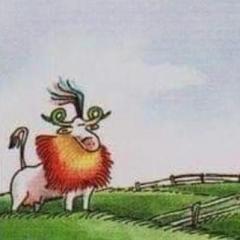
What Is The Last Score You Listened To? (older scores)
Jules and one other reacted to The Illustrious Jerry for a topic
It's that time of year again- time for another John Powell Palooza! Rio by John Powell Very pleasant, albeit one of his lesser works. It can be subdued at times, at least in comparison to other scores, but it's a solid album and fun to listen to. How To Train Your Dragon 2 by John Powell One of Powell's many home runs, building upon it's predecessor to great effect. His theme-crafting abilities are at their heights in this trilogy. It's amazing how consistently awesome he remains over the course of three films (and the movies are some of the best animated films of this decade). Ferdinand by John Powell Another out-of-the-park hit. There's not a single disagreeable note in Madrid Finale, for starters. The entire score is just mindbogglingly good. Powell is one of those composers who gives it his all for these casual animated projects, and that is immensely admirable. Hubris: Choral Works by John Powell Somebody stop me. Now 10 times in the last four days I've listened to this album. I had tried to start it when it first came out but couldn't get into it. I now realize that I should've tried again much sooner- it's one of my biggest muses since Solo: A Star Wars Story (also Powell- coincidence? I think not). There's so much I could say, but I'd like to take time to culminate my thoughts. I'll probably post something in the review forum. Across the Stars by Anne-Sophie Mutter and John Williams Gorgeous. It's a lot of violin on one album, but @Bespin has a great playlist for spacing things out with the Dudamel album as well. Loving Rey's Theme, Sayuri's Theme, Theme from Sabrina, and the title piece, naturally. Wonderful interpretations.2 points -

The Mandalorian SHOW discussion - Spoilers Allowed for all aired episodes
Edmilson and one other reacted to Gruesome Son of a Bitch for a topic
2 points -
In an October survey conducted by the BBC, with responses from top composers such as John Williams, Steve Reich, John Adams, Eric Whitacre, Danny Elfman, John Corigliano, Michael Nyman, Carl Jenkins, Gabriel Yared, and 165 other major living composers today, John Williams tied Schumann and Rachmaninoff for 50th place in the Greatest Composers of all Time, surpassing many of the biggest icons in music history. Each participant was required to vote for the 5 best in history, and the results were totalled and ranked. Williams didn't vote for himself of course, but voted for Bach, Beethoven, Brahms, Haydn, and Mozart. Someone posted about this survey earlier today, but the headline was only about Williams's picks. Not quite proper for this forum: Williams surpassed many of the greatest names in perhaps the biggest modern professional survey on Classical ever done, something for the books! All top 50 composers were written about in the article by some of the composers who specifically selected them. It is a magnificent article to read and absorb. Here are the Top ranked 50 as posted in the BBC article: 1. Bach2. Stravinsky3. Beethoven4. Mozart5. Debussy6. Ligeti7. Mahler8. Wagner9. Ravel10. Monteverdi11. Britten12. Sibelius13. Messiaen14. Bartók15. Shostakovich16. Haydn17. Saariaho18. Brahms19. Reich20. Chopin21. Vaughan Williams22. Schoenberg23. Gesualdo24. Janáček25. Schubert26. Gershwin27. Glass28. Ives29. Prokofiev30. Lutoslawski31. Cage32. Tchaikovsky33. Berg34. Feldman35. Varèse36. Webern37. Byrd38. R.Strauss39. Verdi40. Elgar41. Birtwistle42. Knussen43. Sondheim44. Stockhausen45. Satie46. Tallis47. Hildegard von Bingen ________________ Each receiving the same number of votes: 48. Boulez49. Schumann50. Rachmaninov 51. John Williams Interchangeable rank _______________ Congrats Maestro, on making the Top 50! An article on the BBC Survey in Dec 2019's Magazine: http://www.classical-music.com/news/js-bach-greatest-composer-all-time-say-today-s-leading-composers-bbc-music-magazine Dec 2019 BBC Issue with full article purchasable here: https://www.zinio.com/gb/bbc-music-magazine-m24041 point
-

The Official La-La Land Records Thread
Yavar Moradi reacted to Dr. Rick for a topic
JFK has also been mentioned a few years back, right?1 point -
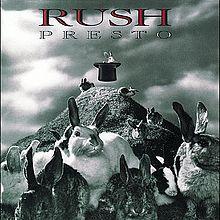
.
Fabulin reacted to Naïve Old Fart for a topic
Geez, Louise, how many are there?! First of all, I thank you @Modest Expectations. I'm flattered that you included me, in your original list. "Musical ideals" is not a concept that I'm familiar with, or, at least, not a concept that I pay much attention to, nowadays. As a younger man, there was a particular rock band, on whose every note and word, I hung. As one gets older, however, one tends to move on from what once excited one, while still retaining - one hopes - a fond regard for what influenced one, all that time, ago. In the case of JW, my tastes in his output have changed considerably, over the years. What once had me swooning, now has a nil-to-negative affect on me. Conversely, scores - and individual cues - have, sometimes "crept up" on me, taking me by surprise, in their relevance to my contemporary situation(s). That being said, the two pieces that seem to sum up where I am (certainly emotionally) at present, are WAKING UP, and A SECOND CHANCE. The former says a lot about me, physically. It's slow, but stately. It's dignified. It signifies the end of an era; a death (don't worry; I'm not going anywhere, soon). The latter, on the other hand, is full of exuberance, joy, and hope, for the future. It says: "Yes, it can happen, to you!". I'm able to hold both in tension. I hope this answers your question?1 point -
He was his usual genial self in a conversation with Justin Freer. He related a few nice anecdotes about writing the score, saying that he had written most of it at his holiday home in France. He talked about how he had struggled to come up with something suitable for the Hogwarts brass band music, Mike Newell rejecting his early attempts because they were not quite 'quirky' enough. By chance he was with his family at a restaurant in France when a local brass band came in to entertain the diners - he suddenly realised what he needed to do and asked the waiter for a napkin so that he could scribble down his ideas! He explained that the brass band music therefore has a bit of a French flavour to it. Interestingly, he said that he felt more comfortable writing music for film than for the concert hall, feeling that film music was his métier. It was also his idea that the Bulgarian Durmstrang boys should enter the hall banging staffs on the floor rather than carrying wands and noted that the music he conceived (with the drums punctuating each strike of the floor) ended up in the film exactly as he had written and recorded it. He joked that he did not know anything about Gandalf at the time and knew he had made the right decision because one of his sons told him, "Dad, that's really cool!" He also talked about having some difficulty coming up with one of the waltzes (it might have been the one for Neville, I cannot quite remember) and ended up writing it in a taxi on the way to a meeting with Mike Newell, before singing it to the director to great approval. He also talked about how he approved of all the musical decisions that Mike Newell had made, which is not always the case when he watches back the films he has scored. For example, he had written some music for the scene early in the film when Harry sees the skull in the sky after the Quidditch World Cup. He agreed with the director's decision to drop the cue in question, appreciating that the scene worked better without music.1 point
-
The box sets for Star Wars (ok, those are individual 2CD sets), Indiana Jones, Jurassic Park, and Harry Potter are essential So are Close Encounters & ET Then I guess The Cowboys, Jaws, Superman, Jaws 2, 1941, Dracula, Empire of the Sun, Home Alone, Hook, Home Alone 2, AI, Minority Report are next Best individual cues JW has written that he chose to not put on the OST album, but have turned up on expanded albums: Father and Son & Quint Meets His End from Jaws Stand By from Star Wars Navy Planes, Lost Squadron, Watching The Skies, The Cover-Up, Who Are You People, and Outstretched Hands from Close Encounters of the Third Kind The Kryptonquake, Jonathan's Death, The Helicopter Sequence from Superman The Probe Scanner and Losing A Hand from The Empire Strikes Back In The Jungle, The Rolling Ball, The Book, To Nepal, The Medallion, Uncovering The Ark, The Airplane Fight, German Sub, The Nazi Hideout from Raiders of the Lost Ark Stay With Me and End Credits from ET Fight in the Dungeon, Battle Plans, Faking the Code, Rebel Forces Captured, First Ewok Battle, Fight With TIE Fighters, The Ewok Battle, Leia Is Wounded, The Battle Rages, More Duel, The Explosion, Vader's Death, Through the Flames from Return of the Jedi Once In A Vial, Out Of Fuel, To Pankot Palace, Approaching The Stones, Short Round Escapes, Saving Willie, Short Round Helps, The Broken Bridge, British Relief from Indiana Jones and the Temple of Doom Bringing Them Back from The Empire of the Sun the third Young Indy cue, Journey To Austria, The Austrian Way, Room In Flames, On The Tank, Wrong Choice Right Choice from Indiana Jones and the Last Crusade Listening To Carson & Walking Home from Home Alone The Bedroom, Looney Wendy, Hook's Entrance, Stop That Clock!!, Daddy Is Peter Pan?, The Death Of Rufio, The Sword Fight, Winning By A Hair, The End of Hook, Exit Music from Hook The Encased Mosquito, The History Lesson, The Coming Storm, The T-Rex Chase, Hungry Raptor from Jurassic Park Corporate Helicopters, Pain Of Glass, Reading The Map, Ludlow’s Speech, Monster On The Loose from The Lost World David Studies Monica, Monica’s Plan, Immaculate Heart, To Manhattan, The Specialist Visits from AI Harry’s Wish and Hagrid’s Entrance, Harry Gets His Wand, Hagrid’s Flashback, Lonely First Night, Fighting the Troll, Filch’s Fond Remembrance, The Dark Forest, Voldemort,Nimbus 2000, Family Portrait from Harry Potter 1 Creating the Red Balls, Presenting the Precogs, Don't Run John from Minority Report The Writing on the Wall, Quidditch Second Year, Petrified Colin, Petrified Hermione from Harry Potter 2 Dumbledore’s Warning, The Big Doors, Brief Snow Scene, Dueling the Dementor, Reading the Map, The Confrontation Scene, The Rescue of Sirius from Harry Potter 31 point
-
Really hope we get this for BF, despite MV's comments about disappointing a bunch of people (perhaps he means those that already spent good money buying the flawed earlier expansion)1 point
-
Oh sorry I never answered that. The performances are mostly fine although Rebecca Ferguson's character felt bit laughable to me. She was great in the M:I films but she makes for a really corny villain (both here and that kid King Arthur film from earlier this year). There are some good ideas in there (small things like single images or scenes) but the thing as a whole just didn't work for me. The world that King creates in his books (none of which I like) is very "literal" and down to earth whereas The Shining by Stanley Kubrick is a highly stylised and surreal film that expresses its ideas purely by visuals and sound design. When you put the latter into the former it just doesn't feel quite right. If you have that highly visceral nightmarish ghosts from the 1980 described as "creatures that are this and this and are after so and so" it just makes it really jarring and robs them of any power. You don't need elaborate mythology of the world and explanatory exposition to make it frightening. In fact that sort of makes it all really flat and sort of like a fan flick. I loved the ambiguity in films and Doctor Sleep absolutely kills any sign of that. Another thing is that I'm not really a horror person. I'm quite anxious in real life and don't particularly enjoy watching people die in horrible ways on screen. Having said that, I have found myself falling asleep watching this. I might have actually missed some of it, can't be too sure. I wasn't tired going in, it was mid-day as well. But there simply was no tension to keep me interested. And it all looks like a cheap Netflix film too with very dull colour palette. And there are some really awful TV-like CG visual effects in this. And it is also mercilessly long. As I said above, I never enjoyed anything from Stephen King much (with very few exceptions). But it seems his books are popular for some reason and they speak to a lot of people. So I bet a lot of people will disagree with me. And that's ok. But with this film is getting such a strong response and The Lion King remake earning $1.7 billion dollars I don't think there is much hope for mainstream cinema. Low-budget films like Midsommar are probably as good as popular films get, from the filmmaking perspective. Was it the most horrible thing I've ever seen? No, of course not. It was just desperately average and unremarkable. Karol1 point
-
They get announced in an email that goes out 12 hours beforehand1 point
-
1 point
-
Alex, you have to post pics like that inside a spoiler (eyeball icon) box and with a NSFW warning. Many of us read this forum at our jobs from our work computers. Thank you.1 point
-
If Holkenborg scores Avatar 2 then Cameron has completely lost his mind. I would've thought he knows well enough the importance of a symphonic, classically-trained composer following in Horner's footsteps, given the established musical palette from the first film. I also think JC is smart enough to understand the state of modern film scoring and probably considers the RCP sound fit for the likes of a Terminator or Battle Angel film but not something organic like Avatar.1 point
-
1 point
-
It's not a question of liking them, it's more of how they function as a series of interconnected films with a satisfying story.1 point
-
If I were to recommend someone to watch the Terminator series, I'd tell them to watch 1 and 2 and then that's it. The franchise has been broken ever since T3.1 point
-
1 point
-
Plagiarism or Inspiration?
Dixon Hill reacted to KK for a topic
Ooph. This thread reeks of Neo-neo JWFan...1 point -
Like @karelm, I have a ton I could choose here, but I'll pick these two: The quasi-fugal stuff here (and earlier) is just incredible: Puts a very old musical art form into a new action context. I love JW's action writing in general. Second, the pure exuberance of this piece is one of my favorite sounds, and some of the chords are just perfect:1 point
-

.
Fabulin reacted to Gruesome Son of a Bitch for a topic
Botanicus Theme. It's melodic with a catchy hook, inspiring yet vaguely masculine and badass, mysteriously tranquil and romantic. Desert Chase from Raiders for sheer coolness and testosterone-fueled masculinity. That shit is the mad notes. Batman is a score that hits all the right notes for me. Just a perfect score. Elfman sums up everything that's great about Batman, music in general and his talents as an artist.1 point -
Yes, I have it. I am still doing my usual clean up on the audio and breaking it into tracks (removing long pauses, promotional spots etc, adjusting volume). I did listen live as well, and then I listened to the raw capture (and most of the concert) on my long run today. Overall, I really enjoyed the performance of the Williams' concerto as well as the others (Barber's Adagio, Saint-Saëns Organ Symphony + 2 encores from soloist James Ehnes). I want to go through the concerto again and really focus on the violin playing and how the orchestra is working with (and at times purposefully in counterpoint). A nice treat of the concert broadcast was that the intermission featured interviews with Stéphane Denève (conductor), Beth Guterman Chu (principal viola) and Ehnes. They all shared some insights of working on the piece (which Ehnes has only played with Denève conducting) and that John Williams came to the entire rehearsal of the piece. He however did not seem to be in the audience last night, so this was even more gracious given he was not going to be present to hear the final output. He spent time together with Ehnes as well 1:1. Multiple people mentioned the timing of the concerto's composition with Williams' late wife, Barbara Ruick, and her tragic passing in 1974. Here is a link to the program notes for those interested. https://www.stlpublicradio.org/programs/symphony/docs/20191102 - Saint Saens Organ Symphony.pdf1 point
-

.
Will reacted to bollemanneke for a topic
Somewhere in my memory and Star of Bethlehem, OST concert versions. Because I love celesta, flute, violin and optimistic and emotional music.1 point -
Maybe crocs thinks that was bad too. Don't give up just yet! Probably but there are so many movies with good performances. Don't you want something more?1 point
-
Update from MV, guess we should curb our enthusiasm? Or trying to throw us off the trail? https://www.filmscoremonthly.com/board/posts.cfm?forumID=1&pageID=4&threadID=138168&archive=01 point
-
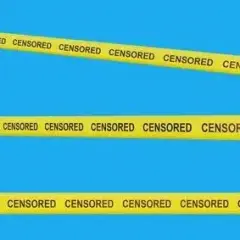
Williams to co-conduct St. Louis Symphony, November 1
tmarps reacted to Jurassic Shark for a topic
Nobody dislikes JW's music as much as JWFans.1 point -
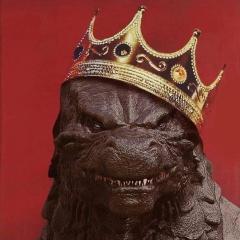
The Mandalorian SHOW discussion - Spoilers Allowed for all aired episodes
Edmilson reacted to Unlucky Bastard for a topic
1 point -
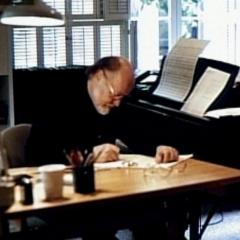
Williams to co-conduct St. Louis Symphony, November 1
Smeltington reacted to Montre for a topic
1 point -
Well having now digested this new 2-CD set for a week or two I can share some thoughts: It has to be said in all honesty that while the music itself is not for a large part a revelation to me as I have lived with the sessions leak for years, this new release makes such previous sources obsolete in every possible way, especially in the sound quality department which I found to be stellar. And although the original album contained a lion's share of the major setpieces from the film, I always thought it was in need of restructuring as this score works better in chronological structure where the musical narrative gets to breathe and slowly develop and envelop the listener. Especially Sean's theme receives more variations in the full score and further reveals it to be the main theme of the score, the emotional one especially. While the score is very much a John Williams score and you can hear his fingerprints on it from start to finish, I have always admired the way he manages to create such individual musical world for his scores even in his preferred orchestral idiom. Minority Report is no different in this, made even more interesting by the composer's willingness to embrace the more modern thriller tropes and scoring trends and blend it all with his own style. Williams' music continues stylistically from A.I.-Artificial Intelligence from 2001 where minimalism and electronics were employed in the same subtle way as they are used here. On the other side are the little obsessive and mysterious ostinati-figures and dark deep orchestral motifs that support individual scenes that harken back to Williams' mentor and colleague Bernard Herrmann. The new set's sound quality was a minor revelation as the lovingly remixed score reveals small details just missing from the OST and has clarity and separation of different elements that is much better than on the previous release which I found to be slightly lacking in punch on the original album. One thing I found surprising on this release was how they treated the action sequences, which were not combined into lengthier tracks here but left separate: Pre-Crime to the Rescue Part 1/Part 2, Anderton Escapes (actually cues Don't Run John and Anderton's Escape)/The Conveyor Belt, Deploying the Spyders/Freezing Water and Confronting Lamar/Thought Transference and Finale are all now in two parts. I know that in the film most of them are separated by a small bit of silence each and are written as separate cues but it is very clear from the OST that they were despite of this meant to flow into one another which is very typical eye and ear for such details from Williams. I guess this is a more archival way of presenting this music, as it was written and recorded and with clean endings and openings, but years of listening to this stuff in combined form has just conditioned me to hear it in a certain structure and flow. In the case of the spyder sequence and Anderton's Great Escape I figured that since there is an alternate for certain part of the lengthy sequence, they chose to present them separately both in the main score programme and in the alternates section so it would be easier to identify this particular segment and not doing another complete edit of the piece with just one passage added in the middle of it. On the other hand I don’t mind the combining of some of the few shorter cues into a slightly non-chronological combinations in the opening half of the score, as they work just fine in the narrative flow. To my film music collector ears Mike Matessino has done a perfect job, balancing what we fans want and still satisfying the composer's and perhaps also personal producer preferences. There are a lot of highlights on this set for me like: the full Pre-Crime to the Rescue and the preceding Creating the Red Balls where the Pre-Crime motif is introduced. The aforementioned previously unreleased dark Anderton Escapes opening (aka Don’t Run John) and Williams’ preferred mix of the whole chase sequence (although I sort of prefer the album mix opening with the short segment of percussion to give it a bit more oomph). Anderston Escapes alternate percussion is a tad too prominent for my tastes. I love the wonderfully moody and gothic Presenting Pre-Cogs where Williams’ music is slowly asking questions and building a sense of mystery, suspense and even subtle dread. Agatha and the Containment Center has that cool dark synthesized choir and pulsing marimba effects in the latter half that are wonderfully eerie and give that brief scene such delicious feel of ghostly unease. How Much Time Have We Got? nicely extends the motif from On the Run. The Revelation is a great coda to the Leo Crow scene that expertly turns slowly from heartbreak to shock and horror. Anderton in Halo has another lovely dream-like variation on Sean’s theme. I know it is a bit of a nerdy fan thing but the Pre-Crime Commercial jingle is also cool to have. The Freezing Water film version opening has those cool entirely different urgent drum beats although I still prefer the original version found in the main programme. Sean by Agatha alternate which I guess is the original take on the scene with that slightly differently orchestrated woodwind section in the middle for a wee bit different emotinal effect which I think they were right to revise. So all in all I couldn't be happier with this set. Another definitive presentation of another wonderful John Williams score.1 point
-

What Is The Last Film You Watched? (Older Films)
The Illustrious Jerry reacted to Chen G. for a topic
Braveheart Finally got around to rewatching this personal favourite. A couple of years ago, this movie renkindled and reinvented my love for cinema. I've never seen a sophomoric effort that was this strong. From the moment Gibson started tracking laterally on young Wallace (keeping the cart carrying the bodies of his father and brother constantly in the shot) I knew I was in the very best of hands. The movie is quintessentially visual: not only is it a big screen movie if ever there was one (while remaining just as captivating on any size of screen), it has sections of ten to fifteen minutes at a time where nary a line of dialogue is uttered. The confidence it took to make a film like this, certainly in this genre and in these (beautiful) locations, cannot be understated. I think in praising the work of Gibson the director, the performance of Gibson the actor can go overlooked. And while I suppose the accent is sometimes dodgy, what I like about it is that the kind of undying, boundless conviction and passion that Gibson the actor infused Wallace with are the same conviction and passion with which he directed this film or even just got it off of the ground; the same fearless leadership he gives Wallace is the one with which he helmed his own army of a production crew. He brings so much personality into this otherwise one-dimensional role. Other standouts include Sophie Marceau: she's often shot in prolonged closeups, without speaking, and yet her feelings - be they terror at Longshanks, her admiration of Wallace or what have you - is always palpable. Her becoming of a shrewd queen in her last scene is as soul-crushing as it is vindicating. Really, the entire end of the film is a mixture of grief and elation that is an intoxicating as the best wines, and like wine it only gets better with age. The film, edited by Steve Rosenblum, is an example of prolonged build-up that will have made Sergio Leone proud. Not only does the first action sequence happen fourty minutes into the movie, but it takes three-and-a-half minutes between its beginning and the first blow actually landing. The Battle of Stirling isn't the best cinematic swordplay battle because the armies are real, but because there are two minutes of tension between the calling of the archers and the arrows landing among the Scottish lines, again with the cavalry before the meet the buisness end of the Scottish pikes, and again before the infantry clash. Sometimes we recieve release through some wonderful humour. The character of Stephen could be (or could have been, in a lesser movie) accused of violating the film's tone, but to me he just breaths so much life into it. That gag in the Battle of Falkirk (you know the one) just caught me by surprise to the point I rolled around laughing. Who knew a film this grim could he so hysterical! James Horner delivers my favourite love theme, and the LSO performs the string-dominant score as best as humanly possible. Along with DP John Toll's magnificent work, they infuse this historic film with an aethereal quality. It really sticks in my mind almost as a Scottish Arthurian movie. Its all here: knights and princesses, mythic love stories, tragedy - it even ends with the (indelible) shot of a sword in the stone. This mythicism just adds so much to the charm of this film. In keeping with its mythic style, the film has been accused of lacking nuance in the motivations of its villains (outside of the Bruce family), and while that's largely true, I don't consider this an issue. Archetypal stories have been a staple of human storytelling from its very impetus, and for a reason: this story is no different. At the very least, I do appreciate that this film doesn't shy away from showing the gruesome deeds of its heroes: Wallace doesn't just kill in action - he executes; without trail, and the results are bloody. But its possible to disagree with the film's message of jingoism and still sympathize with it. The sort of film David Lean would have called a "movie opera". An opera of blood, sweat and tears. To have it be not only a Best-Picture Winner but also the evident inspiration to Gladiator, The Lord of the Rings and Game of Thrones (all terrific in their own right) is just the icing on the cake.1 point -

Who is coming to Vienna?
WilliamsStarShip2282 reacted to Miguel Andrade for a topic
I'll be there on both dates.1 point -
1 point
-
In twenty years of JWFAN nobody's ever raised this before here, nope!1 point
-
I wish to inform you kindly that you are trying to teach hardcore John Williams / film music nerds, many with multi-decade experience, some being musical professionals, trivial, discussed to death observations about obvious inspirations behind some of the most popular moments in his music. Calling Williams a plagiarist or accusing him of low morals or professionalism is a good way to make yourself look foolish around here. Use the search function of the forum and you will find more than you can possibly imagine that has been said on that and any other topic. Other than that: Welcome... to JWFan1 point

